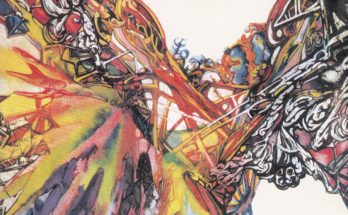By Rodrigo Díaz, Josemaría Moreno and Bernardo Moreno
Love is a feeling, but it also is an ideal, an idea, an objective, a means, and an end—perhaps even an illusion. The ancient Greeks differentiated between four kinds of love. The first one is eros, an impulsive form of physical and sexual attraction that led Plato to compare it with madness. The second is storge, exemplarily related to fraternal love and family relations—from the four kinds, this one is perhaps the most misunderstood, since it is believed to be natural when in fact it requires time, dedication, and resignation.
The third is philia, Greek word with which to designate friendship relations, the kind that can grow with time in a disinterested manner; no doubt Kant would have considered it to be the only form of moral love. Lastly, agape is the purest and highest form of love since it seeks the spiritual and material realization of both lovers: a matter of perspective, certainly, it led Socrates to be accused of corrupting the youth. As can be seen, defining love is complicated. That is why, through the next three recommendations, we aim at shedding some light on the matter.
Pulp, “This is Hardcore,” 1998
Without a doubt, for those of us who survived the 90s as adolescents on our way to adulthood, glam rock, Britpop—or however it came to be known back then—was a string to pull on in order to try to understand existence, love, sexuality, and the feeling of not being alone. There’s no one better than Jarvis Cocker to develop candid stories about love, jealousy, resignation, and the celebration of everyday life and the mundane, though transcendental matters of being. It would be difficult to choose the best Pulp album—that might depend on when you became acquainted with them, or what your state of mind was while listening to them, but “This is Hardcore” is possibly the artistic zenith of this British band that marked an entire generation and that is always remembered fondly. If you haven’t listened to them and you are a sensitive person that appreciates dark humor and the grey undertones of living, this is simply the band for you: “Come and play the tunes of glory, raise your voice in celebration of the days that we have wasted in the cafe, in the station, and learn the meaning of existence, in fortnightly installments. Come share this golden age with me, in my single room apartment, and if it all amounts to nothing, it doesn’t matter, these are still our glory days.”
Michel Houellebecq, “Whatever,” 1994
Few authors pen such a disillusioned vision of society. This novel presents us with an exhausted and disenchanted narrator in a straight path to clinical depression and suicide. In a memorable and acute passage, this odd character shows us his analytical powers through what he calls an apocritique (a critique from a distance; he who has accepted a life of soulless celibacy). Sexuality—that which evidently most people confuse with love—is nothing but a system of social stratification. And in a society where liberalism is the norm, supply and demand determine worth: “Just as rampant economic liberalism, and for analogous reasons, sexual liberalism produces phenomena of absolute impoverishment.” There are those who amass fortunes that can´t be spent in a lifetime while others can´t put food on the table; some count in the hundreds their sexual partners whereas others go through a bitter lifetime unacquainted with a lover´s touch. In any regard, for Houellebecq, those who find love, suffer through the maniac states that it causes, and those who never find it, also suffer, but due to ignorance: “There’s a lot of confusion, a lot of restlessness.”
Lana and Lilly Wachowsky, “Sense8,” 2015-2018
Beyond the dramatic plot, the romance, and the special effects that fuel this TV series, written and directed by the sisters Wachowsky (“The Matrix,” “V for Vendetta”), what´s most striking is the argument they present: the possibility that humanity´s evolution depends on our comprehension of love. Diluting illusory racial, cultural, and sexual barriers, eight characters in different parts of the planet gradually discover and overcome bewilderment and turmoil that awakens them from comfortable everydayness—to the realization that they are connected—that they share sensations, emotions, and skills. This will become relevant as they face those who, for some strange and undefined reasons, aim at destroying them. Going from trying to understand their own personal problems to trying to comprehend why they are connected, this massive and impressive cinematic production takes us from Seoul to Mexico City, from Berlin to San Francisco, from Nairobi to London as we join these characters struggling to discover their powers, while contemplating how the plot thickens—which, unfortunately, due to budget problems, had to come to a precipitous ending. Netflix, you still owe us one!




